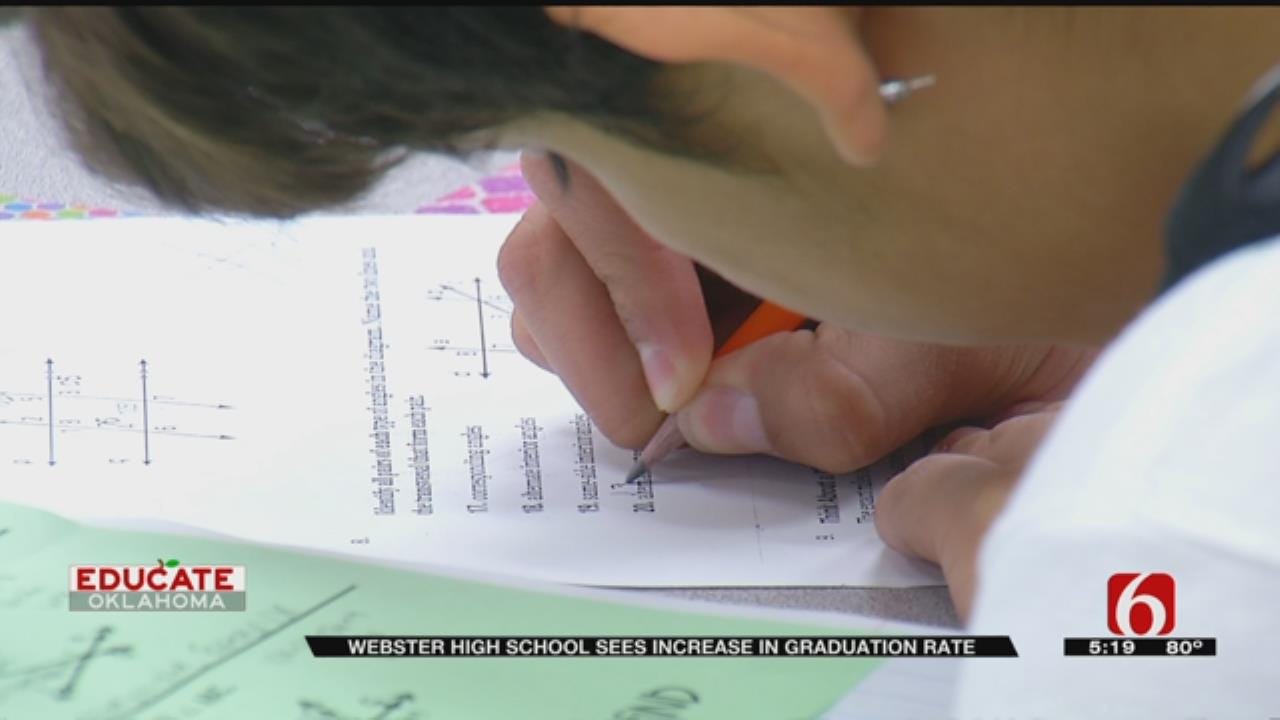Webster Sees Major Jump In Graduation Rate Over Last 4 Years
<p>Webster is in one of the most distressed neighborhoods in Tulsa; but, despite high poverty and tight budgets, it has managed to create one of the biggest graduation rate increases in the entire state.</p>Wednesday, May 16th 2018, 6:09 pm
Webster is in one of the most distressed neighborhoods in Tulsa; but, despite high poverty and tight budgets, Webster has managed to create one of the biggest graduation rate increases in the entire state.
In just four years, it jumped from 53 percent to 79 percent.
Breanna Moore used to attend Jenks but she wasn't on track to graduate because, she said she didn't focus, wasn't taking her work seriously and felt overwhelmed by homework, so she just wouldn't do it.
"I kinda wanted to give up pretty much," she said.
But then she came to Webster, where they told her she could graduate on time.
Moore said they put her in the right classes, told her everything she needed to do to make it possible and talked to her every day about meeting her goals.
Now, she hopes to be a veterinarian one day.
"Don't give up. Definitely do not give up because you want a good, successful life, you gotta graduate to get there," Moore said.
She is one of many success stories happening at Webster.
They follow the Diplomas Now model, which required Webster to move to a block schedule, which is more like a college schedule, where students get four credits in the fall and four more in the spring.
"It's a whole different teaching practice,” said Webster Principal Shelly Holman. “To teach an 85-minute block of time with students is much different than teaching a 45-minute, seven-period day."
Everything about the school is focused on getting kids to graduate to be ready for college or career.
They make it a priority to get to know their students and help them find ways to succeed. And, if a student struggles with a class in the fall semester, they're not destined for summer school.
"So, we are able to put that student back into the core second term and keep them on track. So, we monitor all of our students whether they're on track or off track," Holman said.
She said the greatest feeling is showing a student they absolutely can graduate after they've walked in thinking there's no way it's possible.
Holman said it wasn't easy at first, changing the mindset of students, parents and teachers, but, now that it's working, it's getting easier.
"I think the culture is changing, where kids want to be here and they know the expectations when they come here and how we're going to help them succeed," she said.
That success has been helped by federal grant money as well as money from local philanthropists, but mostly by making people truly believe that, despite this being a high-poverty area, kids can succeed.
Webster school leaders said they'd like to see a three to five percent increase every year.
More Like This
May 16th, 2018
September 29th, 2024
September 17th, 2024
Top Headlines
December 14th, 2024
December 14th, 2024
December 14th, 2024










